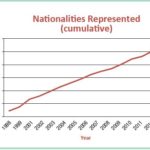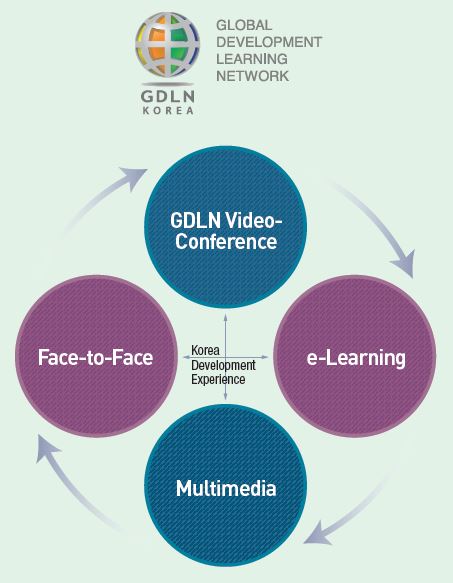
Globalization & education
- Date 2013-05-01 04:57
- CategoryResearch and Education
- Hit1781

Much has been said about the impact of globalization on education. Some people argue that globalization aided by technology will level the playing field by providing more access & educational opportunities. Others claim that globalization means both worldwide inequality and the ‘McDonaldization’ of the university.
Education is the critical asset at the individual level - private returns to education, in the form of wages, are up everywhere in the world. As countries liberalize their economies, education becomes a more important asset and this is especially important for economies in transition. With economic integration and technological change, opportunities for educated workers are increasing faster than opportunities for the unskilled. Thus globalization is responsible for increasing the returns to education.
At the heart of 21st-century development is the knowledge economy which in turn hinges on education. Higher education imparts skills that people require for the new economic order and creates new knowledge. This is why it has assumed unprecedented importance. Even the World Trade Organization has now put higher education in its crosshairs. The current debate concerning the General Agreement on Trade in Services (GATS)—an effort by multinational corporations and some government agencies in the rich countries to integrate higher education into the legal structures of world trade through the WTO—indicates how important universities and knowledge have become in the contemporary world.
So there seems to be a virtuous circle involving globalization & education.
“arguing against globalization is like arguing against the laws of gravity” – Kofi Annan
The broad economic, technological, and scientific trends that affect higher education are largely inevitable. Academic systems and institutions may accommodate these developments in different ways, but they cannot ignore them.
How exactly is Globalization changing Education?
With increasing globalization, we are witnessing the following:
- The widespread adoption of IT is transforming communication, storage, and retrieval of knowledge. Scholars are increasingly dependent on the Internet both to undertake research and analysis and to disseminate their own work. Academic institutions are beginning to use IT to deliver degree programs and other curricula to students outside the campus
- Use of English as common language for scientific/academic publication and medium of instruction
- Common curriculum: degree structures are same across many countries. Also the increasing use of common textbooks, course materials, and syllabi worldwide, stimulated by the expanding influence of multinational publishers, the Internet, and databases, as well as the growing cadre of professors who return home after their studies abroad with ideas concerning curriculum and instructional materials in their fields
- Multinationalization of Higher Education: variety of multinational higher education initiatives—ranging from “twinning” programs linking academic institutions or programs in one country with counterparts in another to universities in one country setting up branch campuses in another
- New international agreements and arrangements drawn up to manage global interactions. The arrangements between countries range from bilateral agreements relating to student and faculty exchanges to the mutual recognition of degrees—for example, the many binational commissions governing the American Fulbright scholarship and exchange programs, the comprehensive Bologna framework designed to introduce changes to harmonize the higher education systems of all EU member states, to specific exchange and scholarship programs such as ERASMUS and SOCRATES.
Embracing globalization is an imperative that cannot be ignored. History shows that when universities shut themselves off from economic and societal trends they become moribund and irrelevant.
KDI School & Globalization

Since it was founded in 1997, the KDI School has leveraged the diversity of its students & faculty and has successfully turned it into its biggest competitive advantage. The KDI School currently boasts over 1000 international alumni from more than 100 countries around the world, and is cooperating with 39 educational institutions from 16 countries to further the cause of globalization.
Among its many educational globalization projects, including the K-Developedia, international conferences, and international alumni associations, the GDLN is a particularly noticeable undertaking.

The Global Development Learning Network (GDLN) was launched by the World Bank in 2000 to design customized learning solutions for those working in development with the objective of improving the development impact by using distance learning methods and connecting development decision makers to exchange knowledge globally
KDI School of Public Policy and Management was designated as GDLN Korea by the World Bank in 2001 and is the only affiliated Korean center for the World Bank–based Global Development Learning Network (GDLN).
GDLN Korea organizes videoconferences on various topics on Korea’s development experience to impart educational content on development. Working as a member of the GDLN Asia Pacific Governing Committee since 2011, GDLN Korea has tㅁㅁken a leading role in sharing development experiences for sustainable development of neighbouring partner countries in the Asia Pacific region.
The KDI School will continue to contribute to the globalization of education by expanding its already considerable international cooperation projects, including participating in multilateral education projects such the CAMPUS Asia. The School is already reaching out to many education institutions and international organizations around the world to further expand its scope of international cooperation, and to provide the students with a truly international environment.
By Manish Joshi (2012 MPP, India)
Related News
-
Research and Education8 days ago
Republic of Korea Economic Bulletin, May 2024#KDI #Economic #KDISCHOOL #kdischool #Economic Bulletin #Research
-
Research and Education36 days ago
Republic of Korea Economic Bulletin, April 2024#KDI #Economic #KDISCHOOL #kdischool #Economic Bulletin #Research
-
Research and Education64 days ago
Republic of Korea Economic Bulletin, March 2024#KDI #Economic #KDISCHOOL #kdischool #Economic Bulletin #Research
